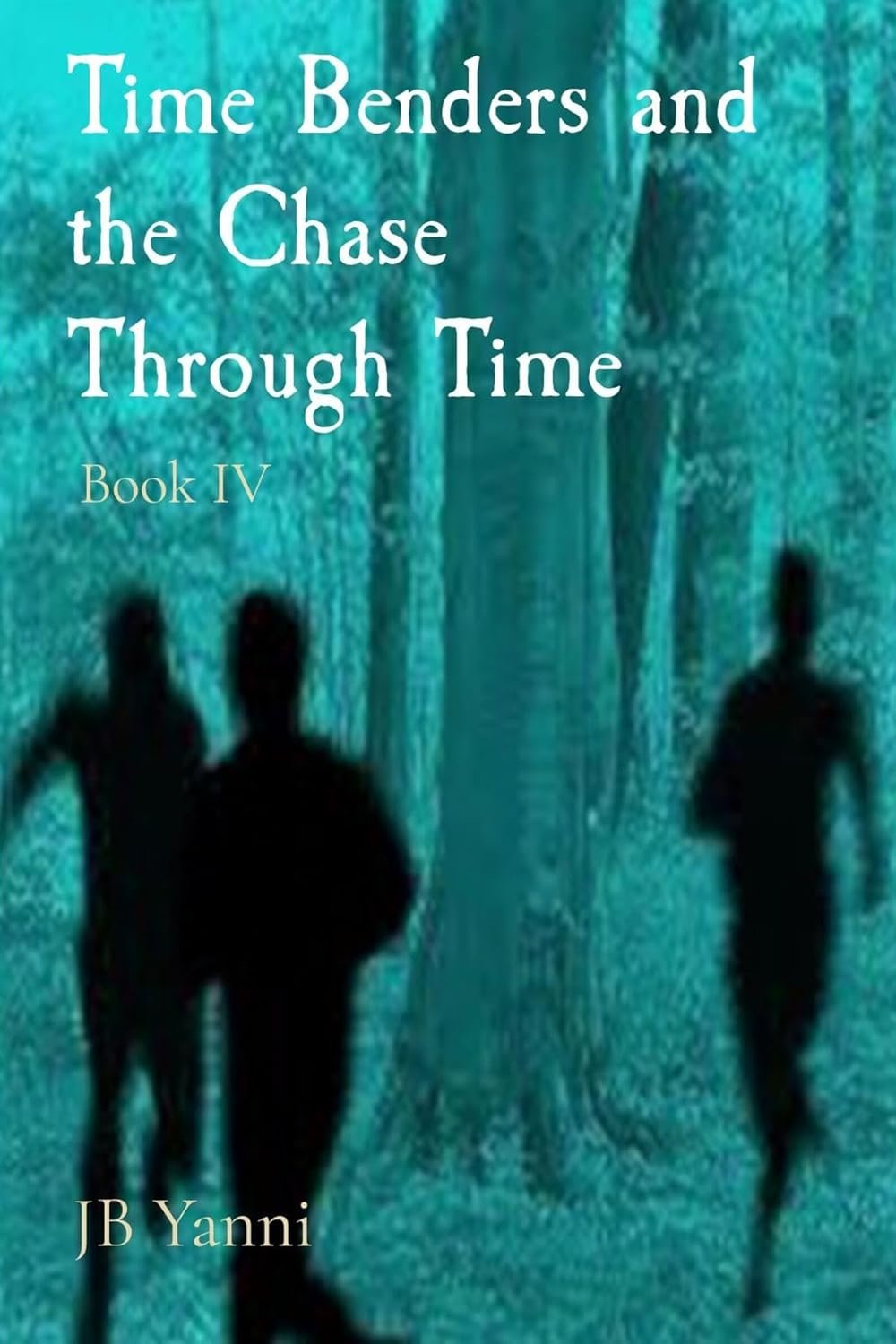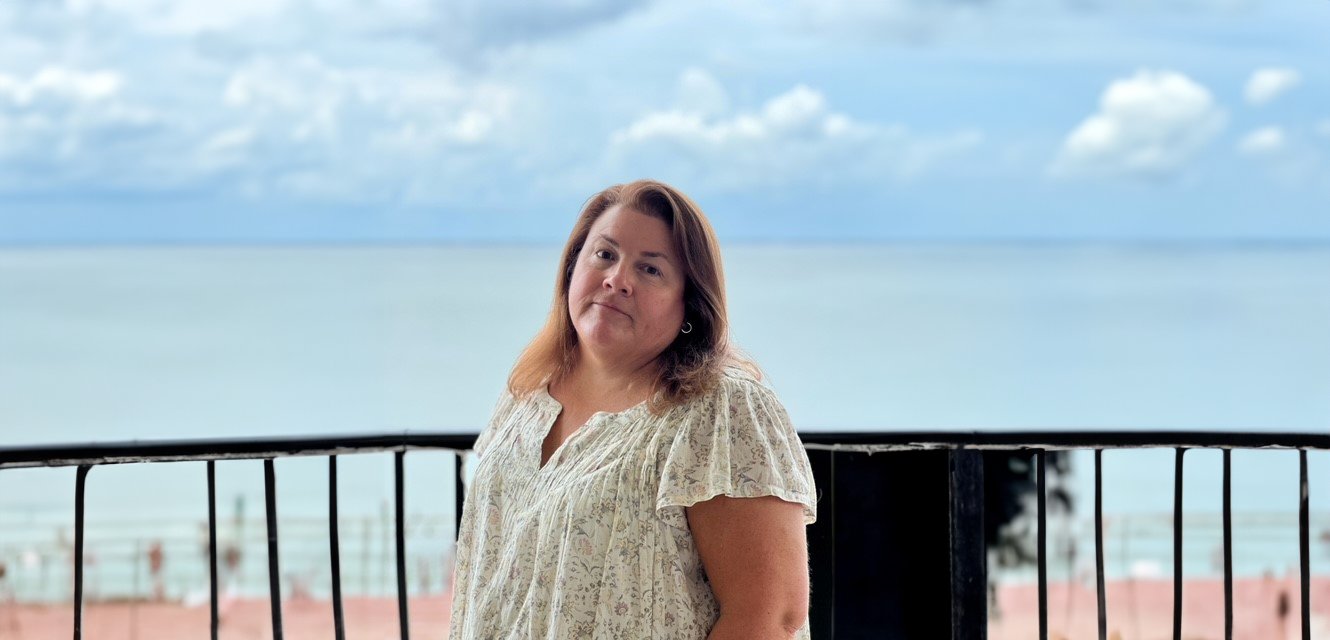Exploring Time and Emotion
JB Yanni discusses her Time Benders series, exploring themes of time travel, family, and grief, while sharing insights into her creative process and personal inspirations.
JB Yanni, author of the Time Benders series, shares her passion for storytelling and the inspiration behind her imaginative works.
JB Yanni, the brilliant mind behind the captivating Time Benders series, has carved a unique niche in the literary world by seamlessly blending science fiction with profound human experiences. Her work is a testament to her ability to weave intricate narratives that explore the complexities of time travel, history, and family dynamics. Yanni’s storytelling is not only imaginative but also deeply rooted in emotional truths, making her characters relatable and her plots compelling. Her books invite readers to embark on a journey through time, while simultaneously delving into the depths of grief, faith, and the enduring bonds of family. It is this remarkable fusion of elements that has earned her accolades and a devoted readership.
In light of her significant contributions to literature and her unique approach to storytelling, we at Reader’s House were eager to explore the inspirations behind her work, her creative process, and the personal experiences that have shaped her narratives. Through this conversation, we aim to uncover the layers of thought and emotion that drive her writing, offering our readers a glimpse into the mind of an author who continues to push the boundaries of the genre.
JB Yanni masterfully weaves together time travel, history, and family dynamics, creating relatable characters and profound themes. Her storytelling resonates deeply, offering readers both adventure and emotional depth. Truly inspiring!
The Time Benders series combines science, history, and family dynamics in a unique way. What inspired you to explore time travel through the lens of a family story, particularly one dealing with loss and grief?
I have always thought the last great adventure for the human race would be to time travel. This is the main inspiration of Time Benders books. Coupled with my fascination with history, I always wanted to explore this in a story. The idea that this would be a group of siblings figuring out the time travel and that it would be seen through the Lense of their grief was purposeful for a few reasons. First, I think young people need more material showing them doing remarkable things. Coming from a close-knit family, I know that’s where my strength comes from and I wanted to showcase a family working together. Having it be the result of the loss enhances this first book as the driver for their time travel and one of the ways they process their grief. The message includes this idea that you can get through grief, you can learn from it and find peace.
“I have always thought the last great adventure for the human race would be to time travel. This is the main inspiration of Time Benders books.” – JB Yanni
The Fitzgerald siblings are each distinct, with unique personalities and challenges. How did you develop these characters, and were any of them inspired by people in your own life or family?
Ken, Deb, Joe and Kim are, I hope, very relatable characters. If we weren’t one of these kids, we knew one. They are bits and pieces of me, my siblings, cousins, and friends. I believe that is the source of their relatability, because their personalities, their fears, their strengths and weaknesses come from real-life. I know the next question, which is most like me? That would be Deb. I lived in the library when I was a child.
In Time Benders and the Machine, the children wrestle with moral and spiritual questions while attempting to change the past. What message do you hope readers take away about the nature of fate, faith, and choices?
We all, at some point, have asked ourselves in quiet moments if we would change something we said or did if we could. Most of us have even thought that through enough to realize that changing an event in the past has consequences. I hope readers gain an understanding of this. I hope they look at their own faith and choices and realize that there are lessons and growth in even the worst events of our lives. We have to trust in the process and look for the purpose.
You blend historical elements with fictional time travel, bringing readers into pivotal moments in US history. How do you go about researching the historical events and locations in your books, and what’s been your favorite historical period to write about so far?
So, this is my favorite subject, thanks for asking about it. I really wanted to blend actual history with this time travel. For me, science fiction is at its coolest when it’s just outside the realm of possibility. I want readers to say, “that could happen.” I generally pick the historical events really early in the outlining process as places and events and times to weave into the message of the story. However, I have two very favorite times in US history. The assassination of JFK, and the Civil War. They are featured in the first and fourth book. To keep the historically accurate information, I spend hours researching, mostly back at the library. Reading, checking details, looking at old maps and photos. It’s not sexy, but it’s my process, hours in the library.
“I think young people need more material showing them doing remarkable things. Coming from a close-knit family, I know that’s where my strength comes from and I wanted to showcase a family working together.”
Time Benders and the Two Promises delves deeper into the consequences of time travel and questions of faith. How do you balance the complexity of science with the emotional and spiritual journey of the characters?
Because the main characters are teens, it would be impossible to separate the time travel moral questions, and emotional and spiritual questions. Teens generally are questioning their faith, exploring their spiritual identities and, probably pretty emotional. Because these characters are dealing with the sudden loss of their parents, this would be truer, not less so. In working to make these characters believable, it has to have all aspects of the science, history, emotions and spiritual struggles. Anything less would make the reader ask why I didn’t include it.
“Ken, Deb, Joe and Kim are, I hope, very relatable characters. If we weren’t one of these kids, we knew one. They are bits and pieces of me, my siblings, cousins, and friends.”
You’ve mentioned that family is an important theme in your life and your books. How has your personal experience with your mother’s Alzheimer’s diagnosis influenced your approach to storytelling, especially in the Time Benders series?
I never intended when I started this writing journey, to deliver such a personal story as the one about my mother. Alzheimer’s is a horrific disease, one that does not force debilitative physical changes, but slowly, bit by bit removes the essence of someone. It is felt by everyone near that patient and turns the entire process into one long period of grief. It was a blessing to spend the time with her at the end, and I will be forever grateful for it, but it did change how I look at everything and it does influence my storytelling of the Time Benders series in that I find it easier to let the characters show their family connectedness, and dependence. I hope it makes them seem richer and even more believable.
EDITOR’S CHOICE
A thrilling, fast-paced adventure blending history and science fiction with compelling characters, high stakes, and thought-provoking time travel dilemmas.

EDITOR’S HIGHLIGHTS
Recommended reads for authors




